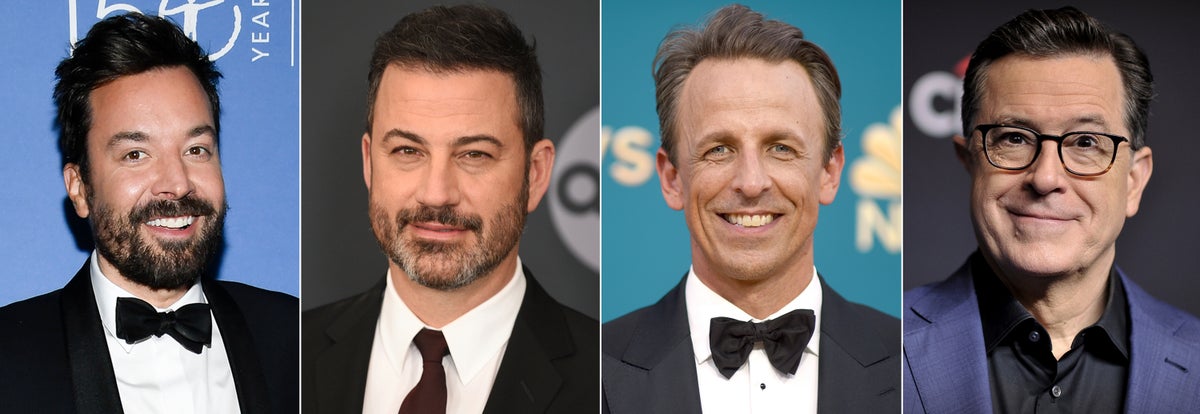
Late-night talk shows are returning after a five-month absence brought on by the Hollywood writers strike, while actors will begin talks that could end their own long work walk-off.
CBS's “ The Late Show With Stephen Colbert,” ABC's “ Jimmy Kimmel Live! ” and NBC's “ The Tonight Show Starring Jimmy Fallon ” were the first shows to leave the air when the writers strike began on May 2, and now will be among the first to return on Monday night.
Comedian John Oliver got his first take on the strike out, exuberantly returning Sunday night to his “Last Week Tonight” show on HBO and delivering full-throated support for the strike.
Oliver cheerily delivered a recap of stories from the last five months before turnings serious, calling the strike “an immensely difficult time” for all those in the industry.
“To be clear, this strike happened for good reasons. Our industry has seen its workers severely squeezed in recent years,” Oliver said. “So, the writers guild went to strike and thankfully won. But, it took a lot of sacrifices from a lot of people to achieve that.”
“I am also furious that it took the studios 148 days to achieve a deal they could have offered on day (expletive) one,” Oliver said. He added that he hope the writers contract would give leverage to other entertainment industry guilds – as well as striking auto workers and employees in other industries – to negotiate better deals.
Warner Bros. Discovery, which owns HBO, is among the studios on the other side of the table in the writers and actors strikes.
Network late-night hosts will have their returns later Monday.
Colbert will have Astrophysicist and author Neil deGrasse Tyson on his first show back. Kimmel will host Arnold Schwarzenegger. Matthew McConaughey will be on Fallon's couch.
All the hosts will surely address the strike in their monologues.
“I'll see you Monday, and every day after that!” an ebullient Colbert said in an Instagram video last week from the Ed Sullivan Theater, which was full of his writers and other staffers for their first meeting since spring.
The hosts haven't been entirely idle. They teamed up for a podcast, “ Strike Force Five,” during the strike.
The writers were allowed to return to work last week after the Writers Guild of America reached an agreement on a three-year contract with an alliance of the industry's biggest studios, streaming services and production companies.
Union leaders touted the deal as a clear win on issues including pay, size of staffs and the use of artificial intelligence that made the months off worth it. The writers themselves will vote on the contract in a week of balloting that begins Monday.
Meanwhile, the Screen Actors Guild-American Federation of Television and Radio Artists will begin negotiations with the same group, the Alliance of Motion Picture and Television Producers, for the first time since they joined writers in a historic dual strike on July 14.
Actors walked off the job over many of the same issues as writers, and SAG-AFTRA leaders said they would look closely at the gains and compromises of the WGA's deal, but emphasized that their demands would remain the same as they were when the strike began.
It was just five days after writers and studios resumed talks that a deal was reach and that strike ended, though an attempt to restart negotiations a month earlier broke off after a few meetings.
The late-night shows will have significant limits on their guest lists. Their bread and butter, actors appearing to promote projects, will not be allowed to appear if the movies and shows are for studios that are the subject of the strikes.
But exceptions abound. McConaughey, for example, is appearing with Fallon to promote his children's book, “Just Because.”
And SAG-AFTRA has granted interim agreements allowing actors to work on many productions, and with that comes the right of actors to publicly promote them.







